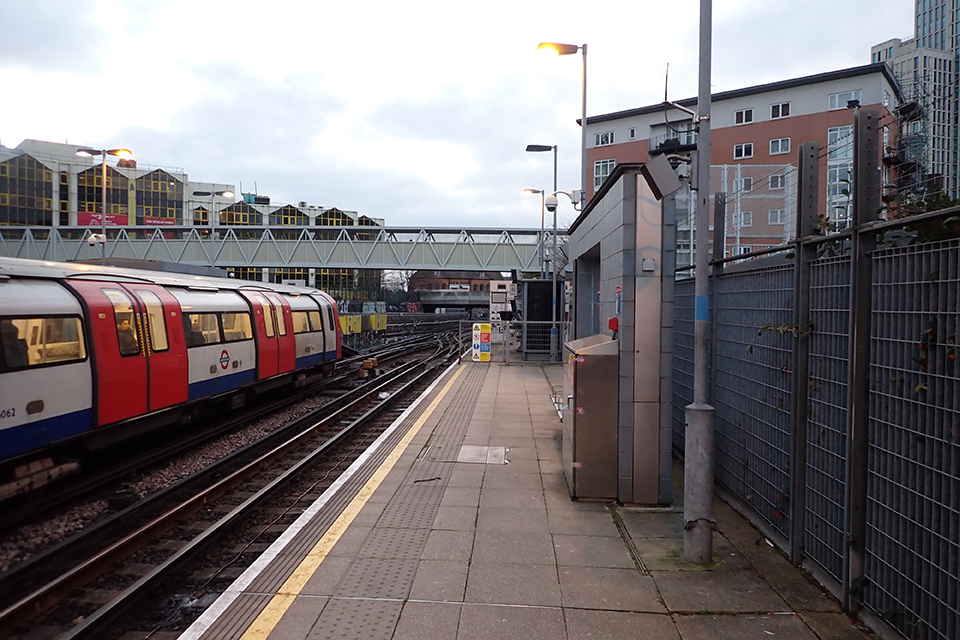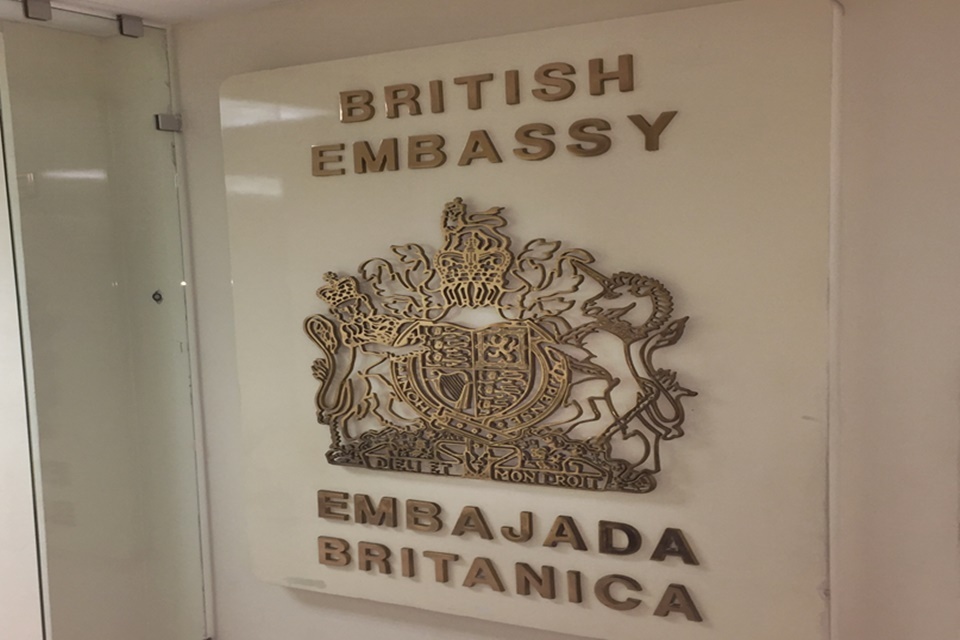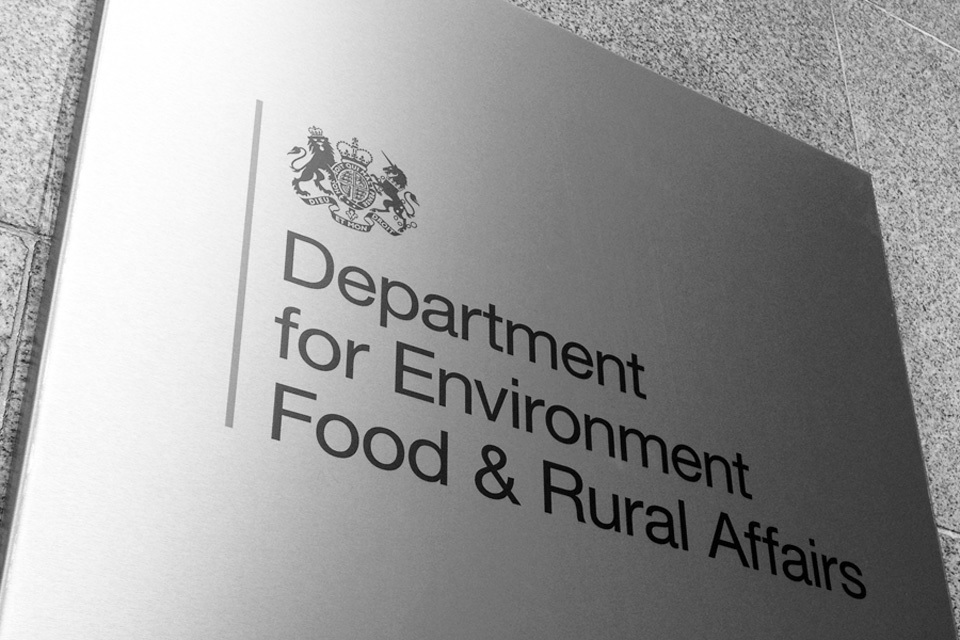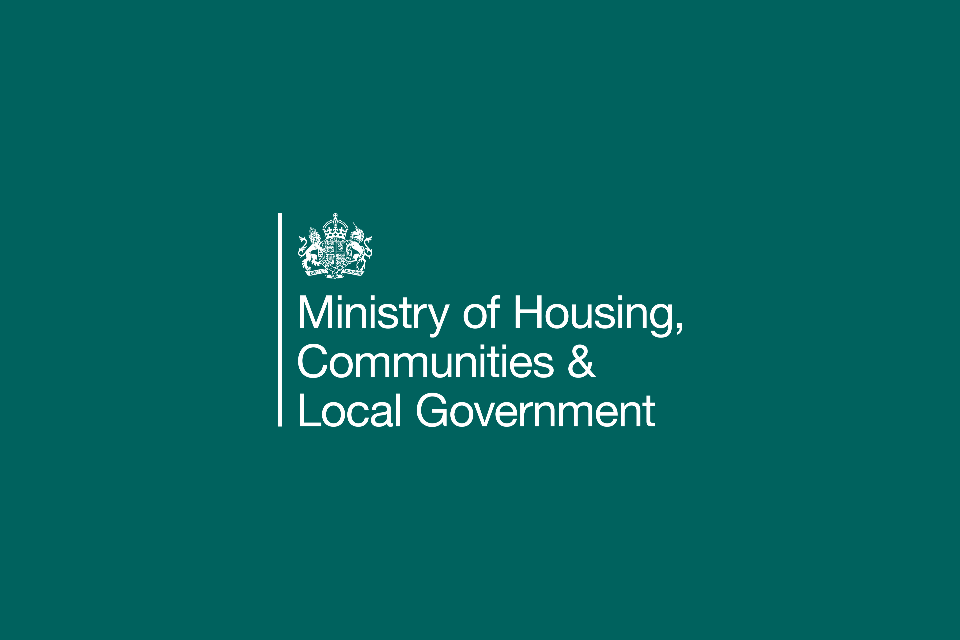Summary
At around 1357 on 26 December 2023, a passenger alighted from a London Underground Jubilee line train at Stratford station. The passenger then sat on a platform bench, opposite the point where they left the train. At around 1445, the passenger stood up, but immediately stumbled forwards and fell from the platform onto the adjacent track. Unable to get to a position of safety, the passenger lay on the track undiscovered for around 5 minutes before being struck by an arriving train, which then stopped normally in the platform.
The presence of the passenger remained unknown and a further three inbound trains entered the terminal platform and went through the location where the passenger was lying. The passenger was fatally injured.
The passenger fell at a time when there were no other passengers or staff present on the platform and there was no intervention made to prevent the first train from arriving. RAIB found that the operator of the first train did not see the passenger on the track ahead of the train as it arrived at the platform. This was possibly because their level of attention was reduced due to the use of automatic train operation. The operator may also have been distracted by the presence of another operator who was standing on the platform as the first train arrived at the station.
The consequences of the accident were made more severe because the operator of the second inbound train to arrive at the platform also did not see the passenger, while the operator of the third inbound train saw something when they were arriving at the platform, but did not recognise what they saw as being a person. The fourth inbound train was not stopped by a customer service assistant who was present on the platform when it was entering the station, even though the assistant was by now aware that a person was on the track. Although the operator of the fourth inbound train had independently recognised that there was a person on the track, they did not stop their train. The train operators working the trains in the outbound direction were not aware of the passenger because the passenger was underneath their respective trains before they departed.
RAIB’s investigation concluded that the repetitive nature of the task under automatic train operation may lead to a state of underload, resulting in the attentional capacity of train operators being diminished. This can increase the likelihood of effects on performance such as reduced alertness or distraction. RAIB also found that at terminus stations some train operators are getting ready to leave their train before it has stopped, meaning they may not be focusing on tasks relating to the operation of the train.
Although London Underground Limited had quantified the risk of a passenger falling from the platform and being struck by a train at Stratford station, the risk controls adopted were not sufficiently effective in this instance to prevent the accident from occurring.
Recommendations
RAIB has made two recommendations, both addressed to London Underground Limited. The first relates to considering the use of technology that can detect if a passenger is in a dangerous position and intervene or warn as necessary to stop an approaching or departing train. The second concerns reviewing the environmental, organisational and job factors related to operating trains in automatic train operation mode to understand how underload may affect train operators. Additionally, a learning point has been identified reminding staff of the importance of using safety-critical communications when reporting and responding to incidents.
Notes to editors
-
The sole purpose of RAIB investigations is to prevent future accidents and incidents and improve railway safety. RAIB does not establish blame, liability or carry out prosecutions.
-
RAIB operates, as far as possible, in an open and transparent manner. While our investigations are completely independent of the railway industry, we do maintain close liaison with railway companies and if we discover matters that may affect the safety of the railway, we make sure that information about them is circulated to the right people as soon as possible, and certainly long before publication of our final report.
-
For media enquiries, please call 01932 440015.







